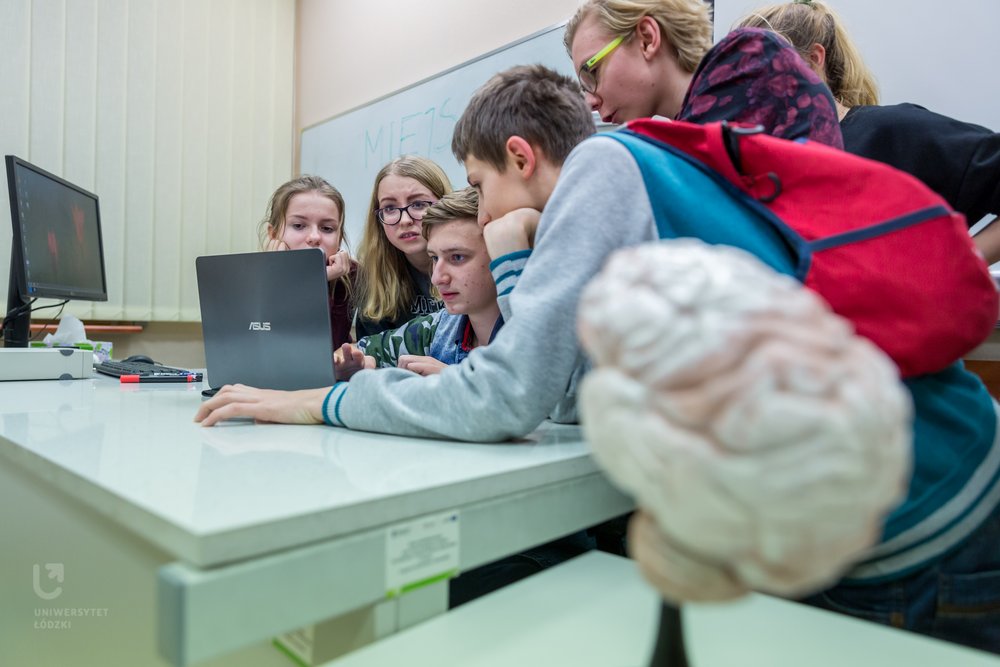The project has been developed in response to alarming data from Polish and foreign schools concerning the deteriorating emotional condition of students and their low resistance to stress – report dr Karolina Kossakowska and dr Magdalena Zadworna from the Institute of Psychology, University of Lodz, who are involved in the project.
We want the students to cope with stress better not only in school settings but also in real life. We will teach children effective communication, which is expected to contribute to their sense of well-being
says dr Magdalena Zadworna, the project manager at the University of Lodz.
We will also work with the teachers, providing them with knowledge on how to work with students to help them develop their psychosocial skills
adds dr Karolina Kossakowska.
Improving the students’ social-emotional learning skills in the school environment, considering the so-called computational thinking, constitutes an important aspect of the project. The term is used to describe the thought processes and activities that accompany formulating complex, open-ended problems and finding their solutions using a computer.
We are also developing, together with the teachers, a programme to improve the students' educational achievements – the researchers add.
The international project consortium plans to develop specific solutions to serve primary school teachers and students, in particular:
- tools and a training course for teachers to develop students' social-emotional competences,
- a prevention programme to support students in coping with the consequences of disorders in the area of social-emotional competences (prevention of depression, stress, suicide, etc.) based on computational thinking,
- implementation of the research findings in pedagogical work related to developing psychosocial skills of students aged 9-11 years, based on computational thinking.
What the global data says
According to the World Health Organisation (WHO) data of 2021, one in seven adolescents aged 10-19 years experiences a mental disorder, accounting for 13% of the global burden of disease in this age group. Depression, anxiety and conduct disorders are among the leading causes of illness and disability among adolescents. Suicide is the fourth most common cause of death among those aged 15 to 19 years. Failure to address adolescents' mental health problems results in these problems also affecting their adulthood, worsening both their physical and mental health, as well as limiting their ability to lead fulfilling lives in the future.
About the COMPUSEL project
The full name of the project is: Computational Thinking in Enhancing Primary Students’ Social-Emotional Learning Skills. One of the main objectives of establishing the international consortium is to exchange good practices from the European countries in the area of social-emotional competences of primary school teachers and students. The total budget of the project, funded by the Eramsus + programme, Strategic Partnerships, is almost €200,000. The researchers' collaboration will run until August 2024.
The consortium consists of:
- Çanakkale Onsekiz Mart University – Turkey (university managing the project),
- University of Lodz: dr Magdalena Zadworna (ORCID: 0000-0002-0585-019X), dr Karolina Kossakowska (ORCID: 0000-0003-3618-1918) from the Institute of Psychology, University of Lodz, dr Arleta Suwalska (ORCID: 0000-0003-0713-8451) from the Department of Theory of Upbringing, University of Lodz),
- Izmir Democracy University – Turkey,
- University of Evora – Portugal,
- University of Bucharest – Romania,
- Social Cooperative Enterprise of Cyclades – Greece.
Source: dr Karolina Kossakowska, dr Magdalena Zadworna, Faculty of Educational Sciences, University of Lodz; https://compuseleu.com/
Edit: Promotion Centre, University of Lodz

